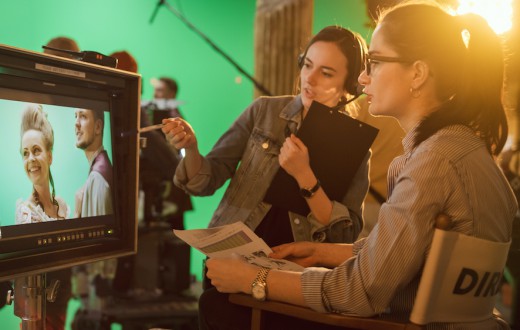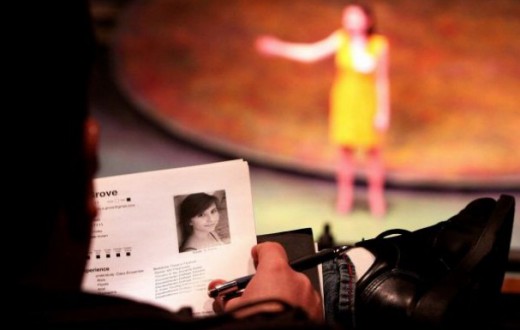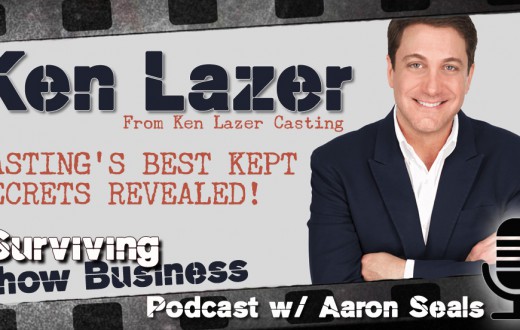In Part I of this series, we discussed Conquering Weaknesses and Celebrating Strengths. No actor is without weaknesses or areas in which they can improve. It’s important for actors to identify their weaknesses, to develop strategies for overcoming them and to cultivate their strengths to achieve their fullest potential. In this installment, let’s talk about the strategies for Overcoming Weaknesses and Developing Strengths.
Viggo Mortensen in Crimes of the Future
Overcoming Weaknesses
We tackled the problems that actors wrestle with the most: Nervousness and anxiety, overacting, Difficulty with Memorization, Inability to Take Direction and Limited Range or Typecasting.
Nervousness and Anxiety
One technique that has proven effective for many actors is meditation. Meditation involves focusing your attention on your breathing and being present in the moment. This practice can help calm your mind. Regular meditation can also help you develop greater self-awareness and mental clarity, which can enhance your overall performance.
There are many types of meditation, perhaps the most popularly known is Transcendental Meditation (TM). But before you go all out on TM, you may also want to look into these other types of meditation as well…
Mindfulness meditation involves paying attention to the present moment without judgment. This practice helps you become more aware of your thoughts, feelings and sensations as they arise, allowing you to develop better control over them. Another type of meditation is loving-kindness meditation which focuses on cultivating feelings of love, kindness and compassion towards oneself and others. This can help reduce negative emotions such as anger, resentment and envy while promoting positive ones like gratitude, empathy and joy.
If you’ve been a reader of mine for a while, you’ll know that for me, meditation is too calm. I grew up in the hustle and bustle of New York City and was wired from birth to always be running around. My meditation is when there’s chaos surrounding me while I look toward the future, which is why I use visualization.
So let’s get into that. Visualization involves creating mental images of success and positive outcomes. By visualizing yourself delivering a strong performance and receiving positive feedback, you can reduce feelings of nervousness and anxiety and improve your confidence. You can practice visualization by setting aside time before a performance. My mother gave me some great advice when I was a kid. She said, “Go into the audition as if you already have the part.” I used that advice in my adult years when interviewing for jobs.
Difficulty with Memorization
One effective way for improving memorization is repetition. Repeating lines and blocking several times can help solidify them in your memory, making them easier to recall during a performance. Be sure to practice repetition in context, such as going over lines while performing the blocking, as this can help you associate the lines with specific movements or actions.
Turning words into a game can also be helpful. These are memory aids that help you link information with an image or vowel sequence, making it easier to remember. For example, creating a phrase in which the first letter of each associated word is incorporated into a word association can be an effective way for memorizing lines. Try memorizing this paragraph, haha!
Inability to Take Direction
Some actors may struggle with taking direction, and this can lead to friction between the actor and the director, producer or fellow screen and stage partners. Fortunately, there are several strategies that actors can use to overcome this weakness and improve their ability to take direction.
It’s important to cultivate effective communication skills. This means actively listening to feedback and asking questions to clarify the director’s intent. Acknowledging the director’s feedback and expressing gratitude for their guidance can help establish a collaborative and positive working relationship.
Limited Range or Typecasting
It can be frustrating to feel like you are being pigeonholed into a particular type of role or genre, especially if you have a desire to expand your range and explore new characters.
One effective strategy for expanding your range is to take on new and challenging roles. This can involve seeking out auditions for roles that are outside of your comfort zone or that require you to play a character that’s vastly different from what you’ve played before. It can also involve taking on roles in different genres, such as comedy or drama, to expand your skill set and showcase your versatility.
Another way to overcome this weakness is to work with a coach or mentor who can help you identify areas for improvement and provide guidance on how to develop your skills. They can also help you identify new and challenging roles to pursue and provide you with guidance on how to prepare for auditions and performances. If you’ve been working with a coach but stopped, this is your opportunity to get back into the game.

Developing Strengths
Four key strengths that actors can develop are versatility, empathy, creativity and imagination. By focusing on developing these strengths, actors can enhance their skills and become more effective storytellers.
Versatility
Developing versatility requires a combination of technical skills, emotional range, and physicality. A great way to do this is to study different acting techniques and methods. This can involve taking classes or workshops in techniques such as method acting, Meisner technique, or the Stanislavski system.
By learning different approaches, actors can expand their toolkit and bring a greater range of skills to their performances. Please, no fighting on which method is better. C’mon, you know you want to have a debate! Okay, fine, follow DirectSubmit NYCastings and leave a comment!
Also, work on physicality and vocal range. Physicality refers to the actor’s ability to use their body to convey emotions and actions. This can involve working on posture, movement, and gesture to create a more dynamic and engaging performance. Similarly, developing vocal range can help actors to portray different accents, dialects and vocal qualities, enabling them to play a wider range of characters.
You know who’s really good at versatility? Kristen Stewart. Check out this clip of Crimes of the Future where she plays this really creepy character. See what I’m talking about?!
Empathy
Developing empathy requires a combination of emotional intelligence, imagination, and observation skills. One effective way to develop empathy is to practice active listening and observation in real-life situations. By paying attention to the emotions and behaviors of others, actors can develop a greater understanding of how different people respond to different situations. You should research and study the background and experiences of the characters you’re portraying. This can involve reading books or watching documentaries about the time period, location or social context of the story. By gaining a deeper understanding of the character’s background, you can connect with their motivations and emotions.
Creativity
Developing creativity requires curiosity, imagination and playfulness. Learn to engage with improvisation exercises. Improv involves working without a script, allowing actors to explore their characters and their relationships in real-time, and often leads to unexpected results.
Immerse yourself in different forms of art. As an actor, you’ll want to broaden your horizons by exploring different forms of art such as music, painting or poetry. This will provide inspiration for your own work.
Take risks. Creativity thrives when you step outside your comfort zone. Don’t be afraid to experiment with new ideas or techniques in your acting performances.
Imagination
One way to develop imagination is to engage in visualization exercises. We talked about this above, so if you somehow skipped down here, please read up 
A lot of people can’t wait to be done with school, but acting is an always-learning process, so… a way develop imagination is to read and study a wide range of literature and media. By immersing yourself in different stories and worlds, you can broaden your understanding of different characters and situations.
If you missed Part I of this series, click HERE to read all about Conquering Weaknesses and Celebrating Strengths.








